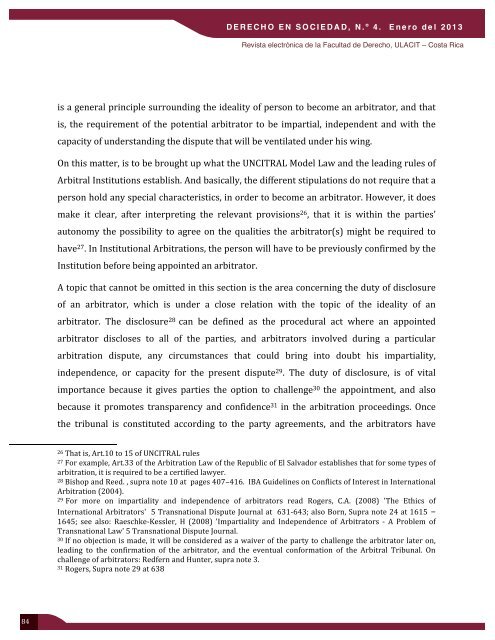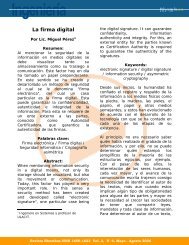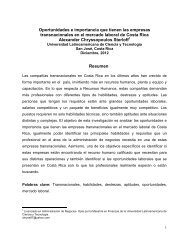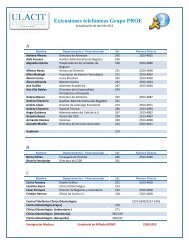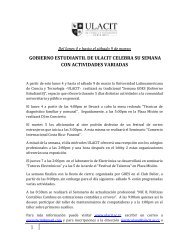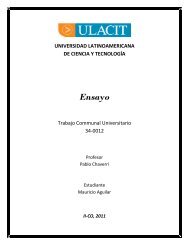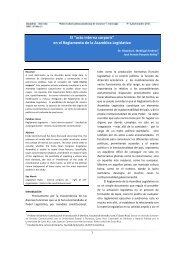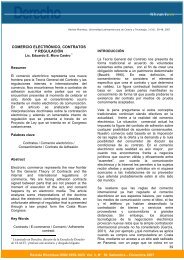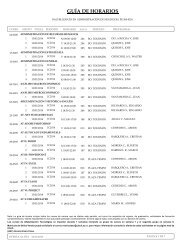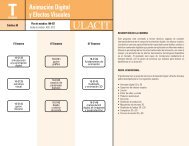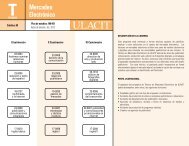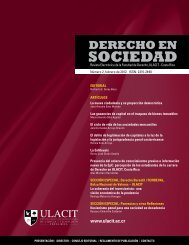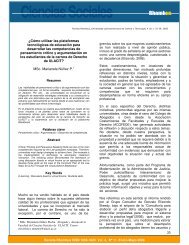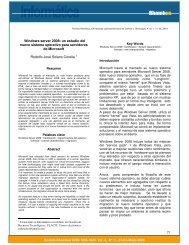IV Edición Revista Derecho en Sociedad - Ulacit
IV Edición Revista Derecho en Sociedad - Ulacit
IV Edición Revista Derecho en Sociedad - Ulacit
You also want an ePaper? Increase the reach of your titles
YUMPU automatically turns print PDFs into web optimized ePapers that Google loves.
DERECHO EN SOCIEDAD, N. º 4 . Enero del 2013<br />
<strong>Revista</strong> electrónica de la Facultad de <strong>Derecho</strong>, ULACIT – Costa Rica<br />
is a g<strong>en</strong>eral principle surrounding the ideality of person to become an arbitrator, and that <br />
is, the requirem<strong>en</strong>t of the pot<strong>en</strong>tial arbitrator to be impartial, indep<strong>en</strong>d<strong>en</strong>t and with the <br />
capacity of understanding the dispute that will be v<strong>en</strong>tilated under his wing. <br />
On this matter, is to be brought up what the UNCITRAL Model Law and the leading rules of <br />
Arbitral Institutions establish. And basically, the differ<strong>en</strong>t stipulations do not require that a <br />
person hold any special characteristics, in order to become an arbitrator. However, it does <br />
make it clear, after interpreting the relevant provisions 26 , that it is within the parties’ <br />
autonomy the possibility to agree on the qualities the arbitrator(s) might be required to <br />
have 27 . In Institutional Arbitrations, the person will have to be previously confirmed by the <br />
Institution before being appointed an arbitrator. <br />
A topic that cannot be omitted in this section is the area concerning the duty of disclosure <br />
of an arbitrator, which is under a close relation with the topic of the ideality of an <br />
arbitrator. The disclosure 28 can be defined as the procedural act where an appointed <br />
arbitrator discloses to all of the parties, and arbitrators involved during a particular <br />
arbitration dispute, any circumstances that could bring into doubt his impartiality, <br />
indep<strong>en</strong>d<strong>en</strong>ce, or capacity for the pres<strong>en</strong>t dispute 29 . The duty of disclosure, is of vital <br />
importance because it gives parties the option to chall<strong>en</strong>ge 30 the appointm<strong>en</strong>t, and also <br />
because it promotes transpar<strong>en</strong>cy and confid<strong>en</strong>ce 31 in the arbitration proceedings. Once <br />
the tribunal is constituted according to the party agreem<strong>en</strong>ts, and the arbitrators have <br />
26 That is, Art.10 to 15 of UNCITRAL rules <br />
27 For example, Art.33 of the Arbitration Law of the Republic of El Salvador establishes that for some types of <br />
arbitration, it is required to be a certified lawyer. <br />
28 Bishop and Reed. , supra note 10 at pages 407–416. IBA Guidelines on Conflicts of Interest in International <br />
Arbitration (2004). <br />
29 For more on impartiality and indep<strong>en</strong>d<strong>en</strong>ce of arbitrators read Rogers, C.A. (2008) 'The Ethics of <br />
International Arbitrators' 5 Transnational Dispute Journal at 631-‐643; also Born, Supra note 24 at 1615 – <br />
1645; see also: Raeschke-‐Kessler, H (2008) 'Impartiality and Indep<strong>en</strong>d<strong>en</strong>ce of Arbitrators -‐ A Problem of <br />
Transnational Law' 5 Transnational Dispute Journal. <br />
30 If no objection is made, it will be considered as a waiver of the party to chall<strong>en</strong>ge the arbitrator later on, <br />
leading to the confirmation of the arbitrator, and the ev<strong>en</strong>tual conformation of the Arbitral Tribunal. On <br />
chall<strong>en</strong>ge of arbitrators: Redfern and Hunter, supra note 3. <br />
31 Rogers, Supra note 29 at 638 <br />
84


